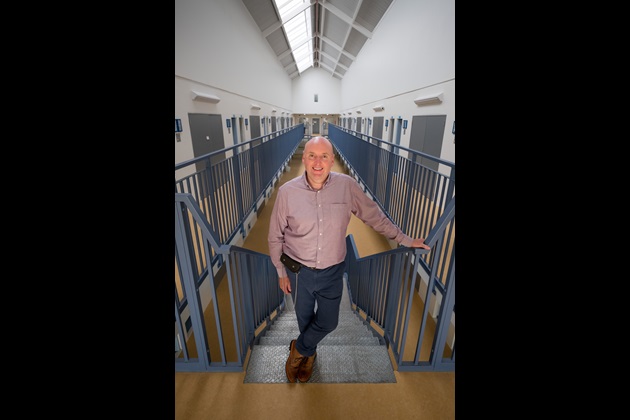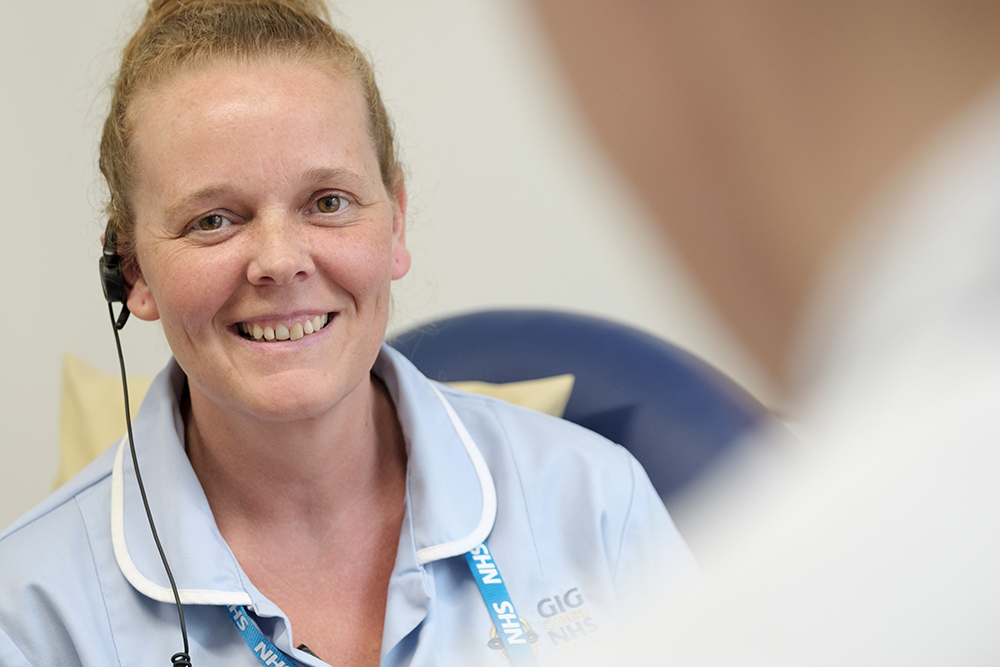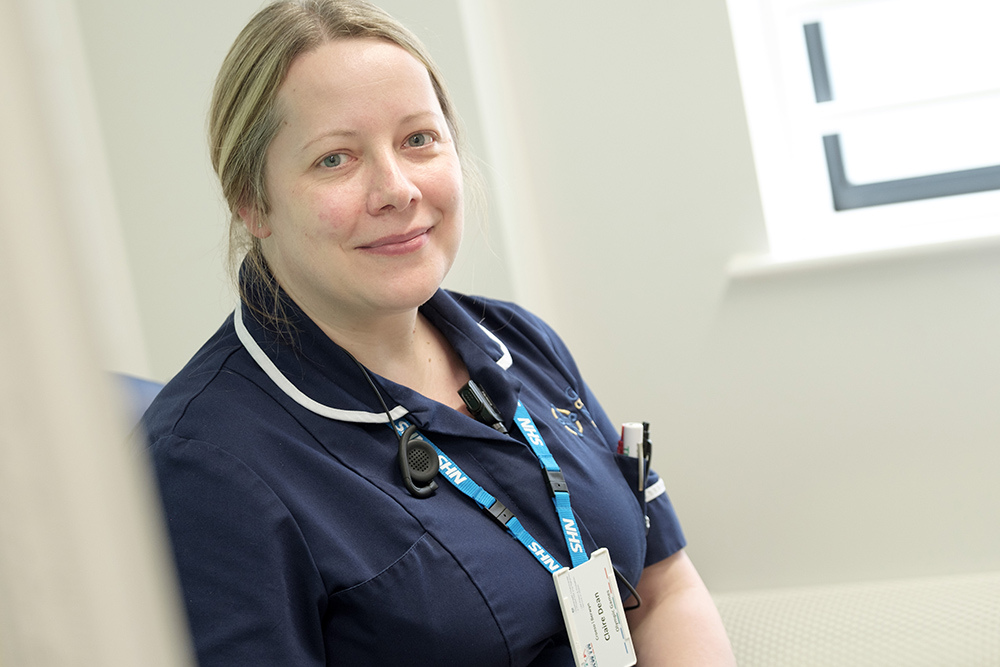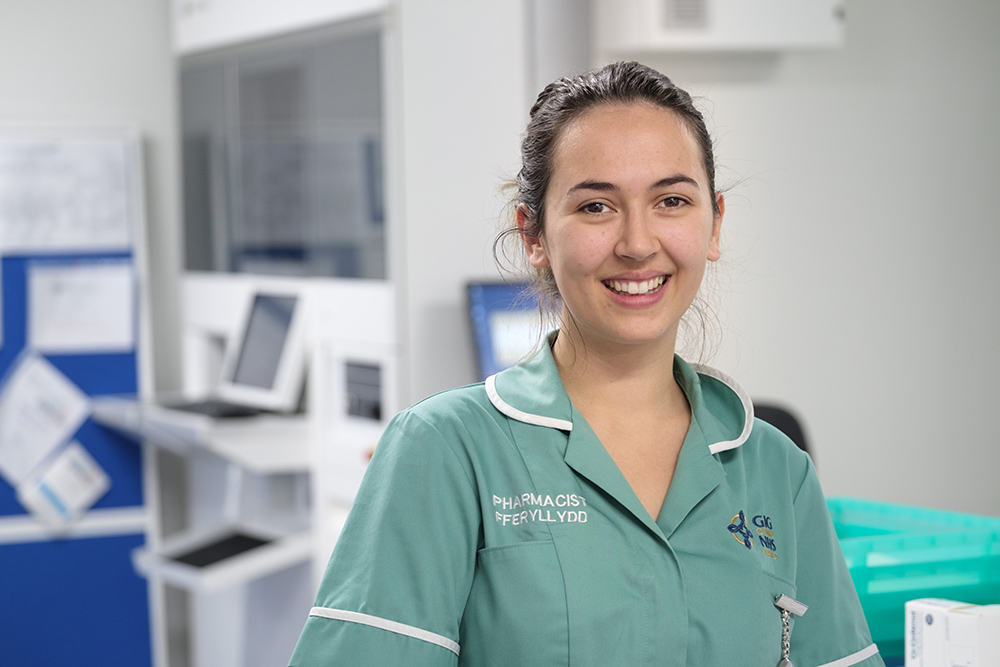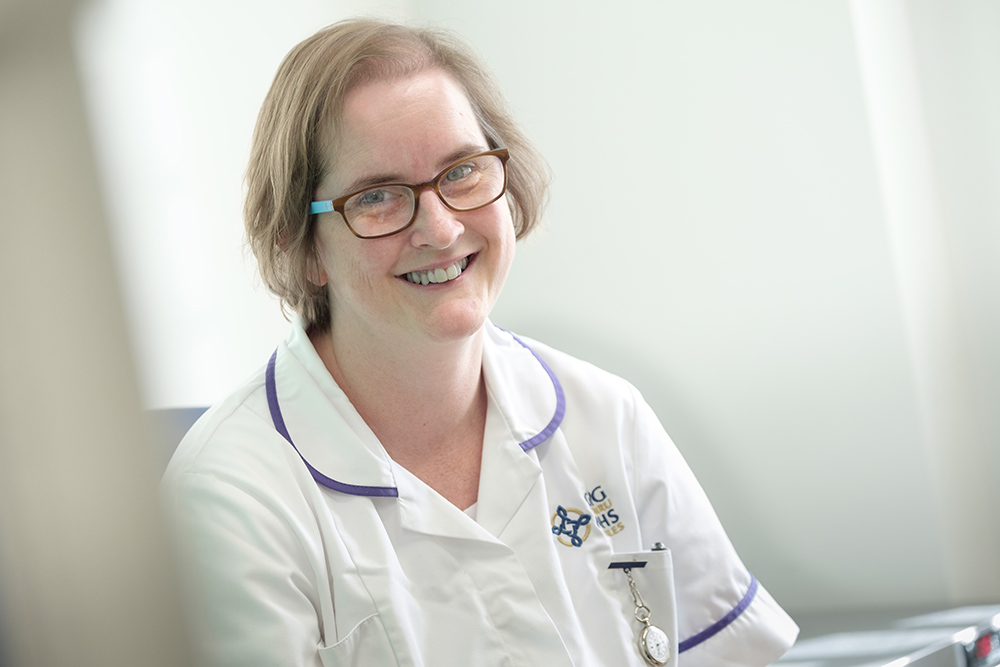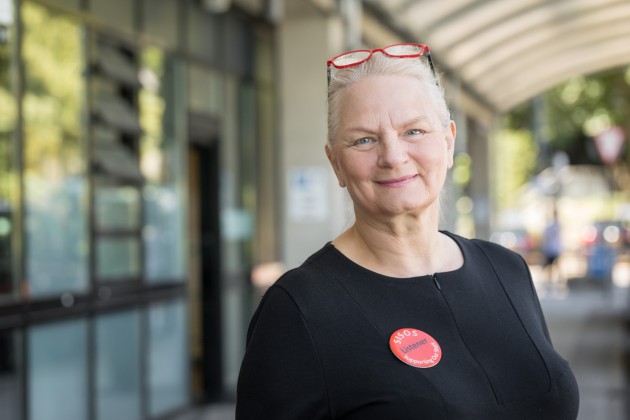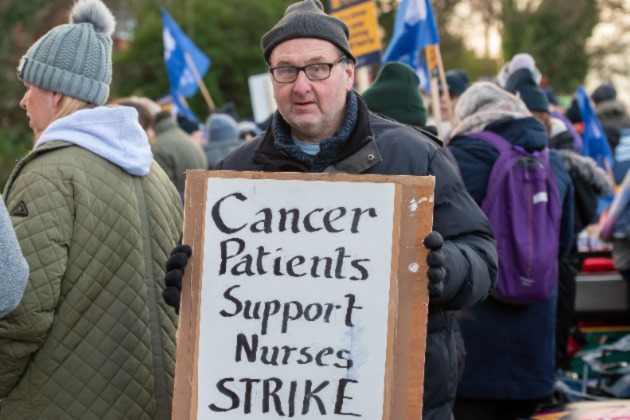Setting up a fully integrated health service from scratch in a brand new “super prison” is no mean feat. But that’s just what Simon Newman, Head of Healthcare at HMP Berwyn, has been devoting himself to for the past few months.
“To have the opportunity to set things up from the start has been exciting,” says Simon, who started his role in October last year, ahead of the prison’s opening in February. “Since opening there have been some challenges around the complexity of the men and receiving them into a new prison with a new system, but it feels like the way Berwyn wants to be different is slowly coming into force.”
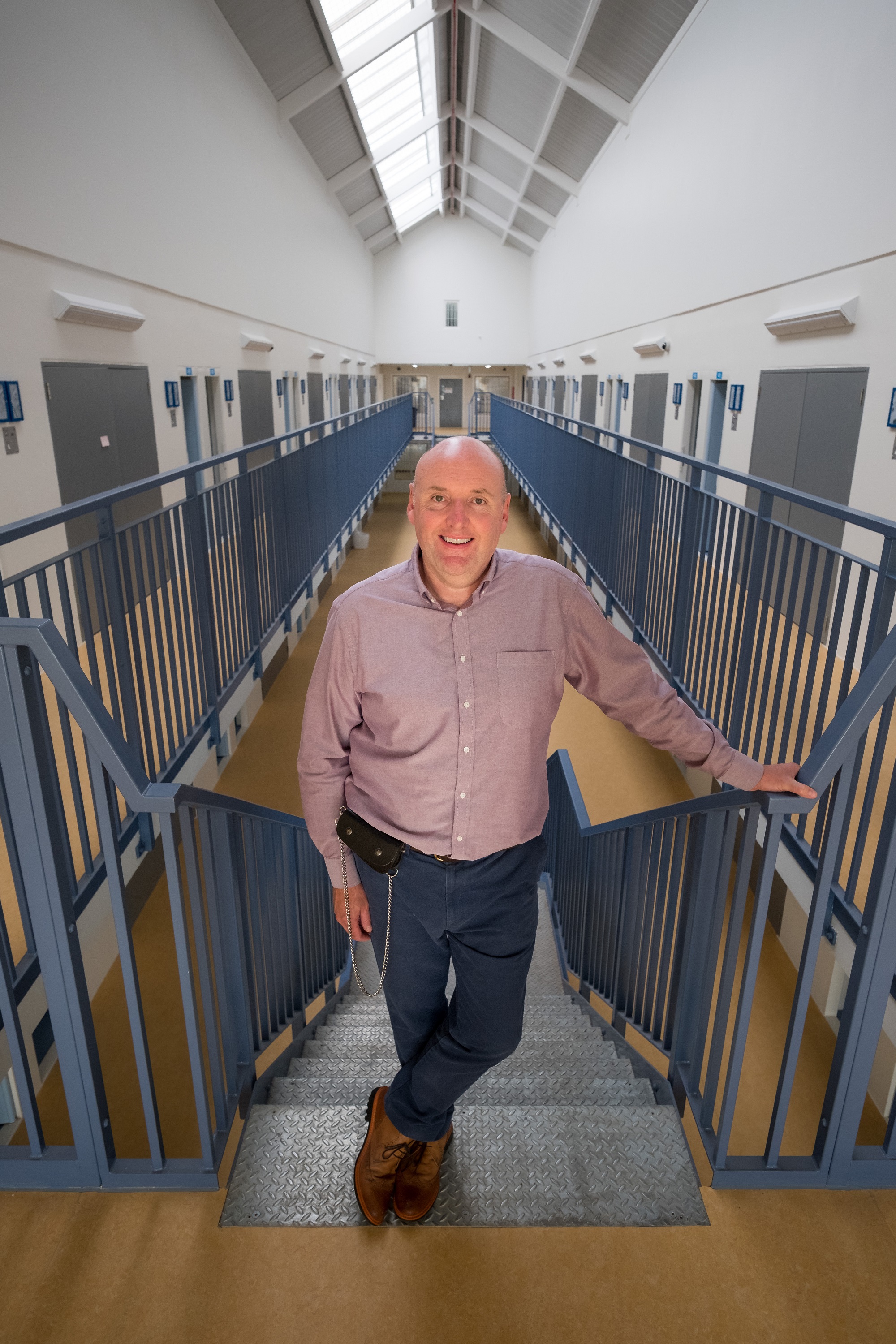 Simon Newman, Head of Healthcare at HMP Berwyn.
Simon Newman, Head of Healthcare at HMP Berwyn.
The category C facility on the outskirts of Wrexham currently houses around 600 men, but by the time its full capacity of 2,106 is reached it will be the biggest prison in the UK and one of the largest in Europe. But it’s not just its size that makes it unique.
A different approach
While some of the on-site health care facilities, such as primary and dental care, are widely found in prisons, Berwyn also has its own integrated pharmacy, audiology, radiology, physiotherapy, speech and language therapy, substance misuse, mental health and learning disability services.
This is all provided by Betsi Cadwaladr University Health Board, which administers NHS services in North Wales. As Simon explains, this is very different to how prison health services are provided in England, where he previously worked at a number of facilities.
“The prison’s health and wellbeing services are all delivered by the local health board and staff are all employed by the health board. This is not the case in England.
“The main benefit of the Welsh system is services are more joined up, because you don’t have multiple providers. It also means communication with local hospitals and community services is really good, and from a staff perspective you don’t get the professional isolation which can come from working in a prison because we link in with the health board’s wider training and development plans.”
It’s not just the staff who benefit from the services, however.
“HMP Berwyn has a clear rehabilitative focus,” says Simon. “We’re doing things a bit differently here with the aim of preventing men coming back to prison.”
First name terms
Central to the prison’s ethos is “the principle of normality”, the idea, advocated by Nelson Mandela, that making prison feel as normal as possible helps make the transition back to the community easier.
To this end, staff do not refer to “prisoners” or “offenders”, but “men”, and there are “rooms” rather than “cells.” Everyone, staff and men alike, is encouraged to call each other by their first names, and all name badges have a word or phrase on them to trigger a conversation; Simon has the RCN’s motto, tradimus lampada (Latin for “we carry the torch”), on his.
The principle of normality also extends to the on-site health care facilities. The waiting room in the dedicated health and wellbeing centre is designed to look as much like an ordinary NHS surgery as possible. As one of the prison’s core values is to embrace the Welsh language and culture, signs are bilingual and pictures of local landscapes adorn the walls.
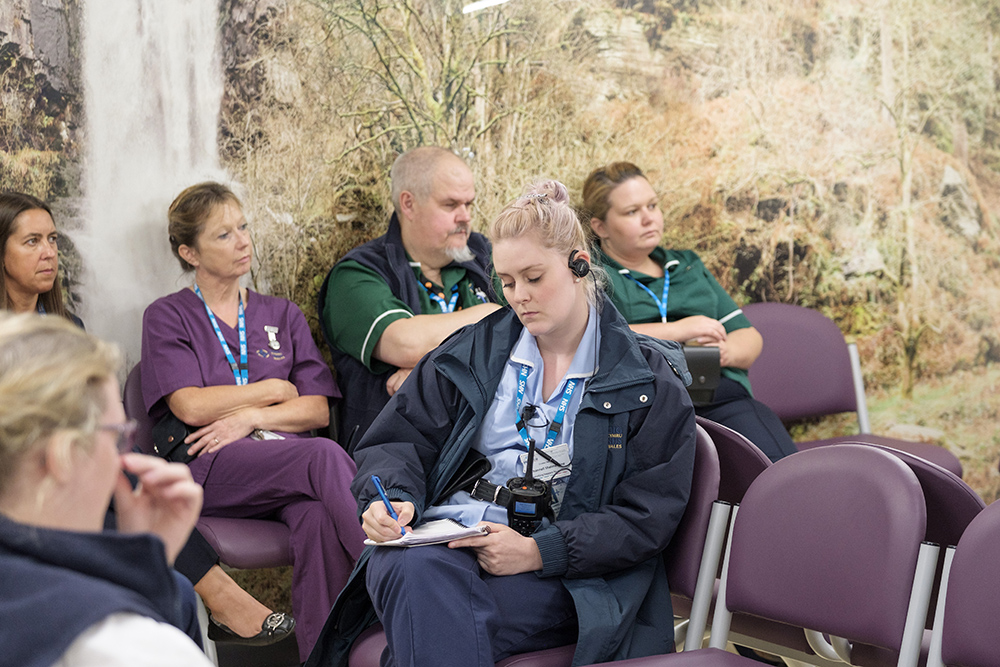 Prison health care staff gather for their morning meeting.
Prison health care staff gather for their morning meeting.
Signs of success
The health care services have only been fully operational since July but the early signs have been positive, despite some initial teething problems.
“The main health care challenges have been around medicines management,” says Simon. “Some of the men come to us on multiple medications and might not have had a medication review for several years. Our medicines management process is aimed at recovery and reducing dependency on prescribed drugs, so we review all medication to ensure the men are only prescibed the medicine they need. It’s a very robust approach.”
Aided by the on-site pharmacy and a range of state-of-the-art dispensing, storage and administration machines, which improve efficiency and accuracy, the health benefits have been noticeable. The prison is also smoke-free.
“We’re getting good feedback from the men,” says Simon. “They’re saying how much better they’re feeling, more awake and alert. Their families are also saying they are more positive during visits.”
He’s also quick to point out that the general public benefit indirectly from the kind of health care facilities available at Berwyn, and uses the on-site x-ray facilities as an example.
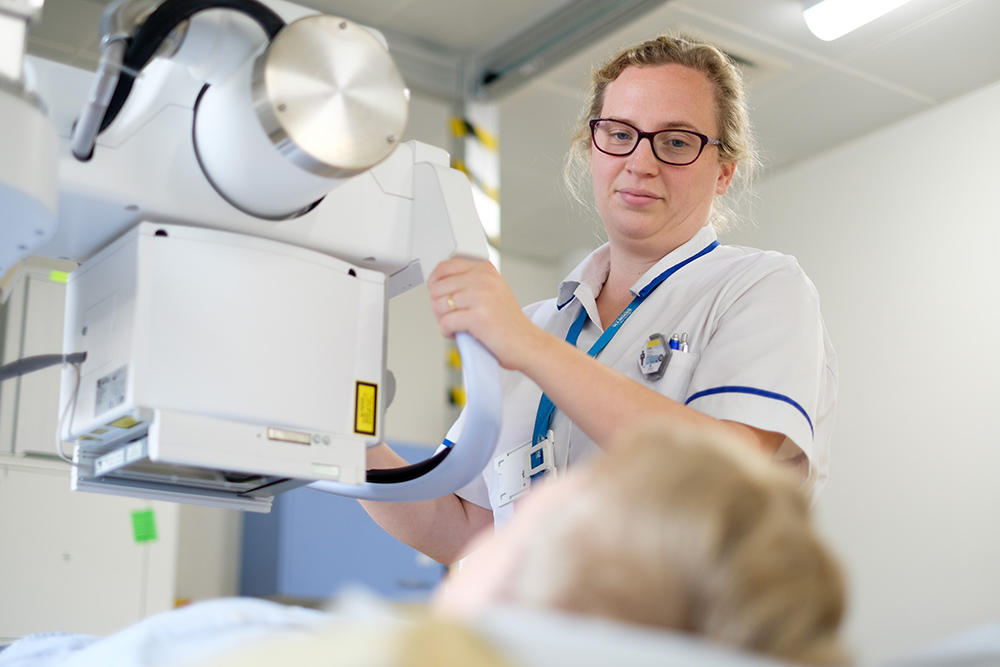 Radiology facilities at HMP Berwyn.
Radiology facilities at HMP Berwyn.
“At most other prisons, if a man had a suspected fracture you’d need to take him off-site to get it checked out, which would require a minimum of two prison officers to accompany him,” he explains. “Here, an x-ray can be taken on-site and our staff can send it electronically to Wrexham Maelor Hospital for a consultant to look at. So it not only saves time and manpower, but it also keeps services in the community available for the public.”
He adds that he hopes Berwyn will become a model for other prisons to follow.
“It’ll be a year or two at least before we can say if it’s working or not. No doubt we’ll make mistakes along the way, but hopefully it’ll be something others can learn from.”
'I love what we're doing here'
Health care staff at HMP Berwyn talk about the prison's unique facilities and what they enjoy about their roles.
Find out more
Do you work in a prison, or have an interest in this area of nursing? Join the RCN Nursing in Justice and Forensic Health Care Forum for networking and professional development opportunities.


